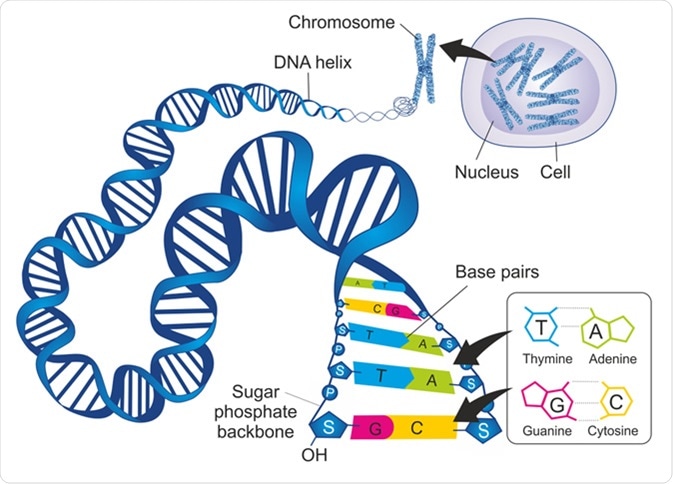What is DNA?
DNA, or deoxyribonucleic acid, is a molecule made up of two chains that wrap around one another to create the genetic structure or blueprint. DNA is responsible for providing the information needed to create the structure and function of living organisms, including humans, plants, and some viruses.

What is a DNA diet?
The idea that one diet suits all is not the case, as each individual and body type is different and every individual is unique. Research has investigated DNA and how a diet can be created from each gene in our bodies to get a diet personalized and suited to you.
A DNA diet tries to overcome the struggles people face when it comes to dieting as it provides a diet based solely on an individual’s DNA.
Why was the DNA diet created?
DNA sequencing has allowed examination of various genetic traits that are associated with multiple states of health and disease.
Nutrigenomics is the study of the relationship between nutrition and the human genome. Some researchers and diet developers believed that examining one’s DNA can help determine which diet would be most appropriate for an individual’s health.

How does the DNA diet work?
DNA diets are created by companies based on their interpretation of how up to 100 aspects of one’s DNA sequence influences their health and susceptibility to disease. Rather than recommend a diet for a population, DNA diets claim to make recommendations based on what would be optimal given what is known about a client’s DNA composition. Some of the DNA diet companies will also provide meal plans, recipes, and grocery lists.
Types of DNA diet
After a sample for NA testing is provided, specific areas of the DNA are examined before a diet is recommended.
Examples of commonly recommended diets include a balanced diet, a low-carb diet, a low-fat diet, a Mediterranean diet, a lactose-free diet, or a gluten-free diet.
A low-carb diet would focus on a high intake of protein and limiting the number of carbohydrates that are consumed. The diet will also advise an increased amount of non-starchy vegetables and healthy fats, decreasing sugars and fats significantly.
Another example of one of the DNA diets is, 'a balanced diet' this diet would suggest eating a range of food from many different food groups. This diet is typically associated with generally healthy individuals without any complex health problems such as high cholesterol.
What are the considerations used by companies recommending DNA diets?
Any possible allergies and intolerances are considered when a DNA diet is created. As well as what food group is the best for weight loss.
Testing someone’s DNA allows companies to determine whether or not they have specific genetic variants that make them more susceptible to obesity, problems with alcohol intake, or food allergies or intolerances.
Companies often supplement the genetic information they obtain with results from questionnaires about eating habits or associated feelings, as well as blood tests to measure blood sugar.
Disadvantages of the DNA diet
Although dieticians agree that no single diet is appropriate for all persons, it remains challenging to determine whether to recommend these diet plans. The DNA diet fails to consider risks such as obesity and anorexia and is not based on a complete clinical picture of one’s dietary needs, existing health conditions, and medications.
Eliminating a group of foods from one's diet can be dangerous, and there are reports that some diets make these recommendations for some persons. Therefore, keeping a healthy balanced diet and not removing a food group from their diet is essential in staying healthy.
Importantly, genes are responsible for explaining only 5% to 10% of diseases, such as type-2 diabetes and obesity. Consequently, diets based on DNA testing are unlikely to offer the personalization that they espouse. Far more important in health and disease susceptibility are modifiable behaviors.
Things to consider before dieting
Always consult a dietician or doctors' advice when considering changing a diet plan, particularly if you have an underlying condition.
Sources
- 6 Types of Diets Your DNA Can Recommend You - Pathway Genomics (2018). Available at: www.pathway.com/blog/6-types-of-diets-your-dna-can-recommend-you/ (Accessed: 19 February 2020).
- A Diet Plan Based on Your DNA Has Arrived—Here's What You Need to Know (2020). Available at: https://www.health.com/nutrition/dna-diet-plan
- Collier, R. (2016) "The DNA-based diet," Canadian Medical Association Journal, 189(1), pp. E40-E41. DOI: 10.1503/cmaj.109-5352, www.cmaj.ca/content/early/2016/11/21/cmaj.109-5352?versioned=true
- NPR Choice page (2020). Available at: www.npr.org/.../personalized-diets-can-your-genes-really-tell-you-what-to-eat
- Reinagel, N. (2019) Personalized Nutrition: The Latest on DNA-Based Diets, Scientific American. Available at: www.scientificamerican.com/.../
- (2020) What is DNA?, Genetics Home Reference. Available at: https://ghr.nlm.nih.gov/primer/basics/dna (Accessed: 20 February 2020).

0Comments